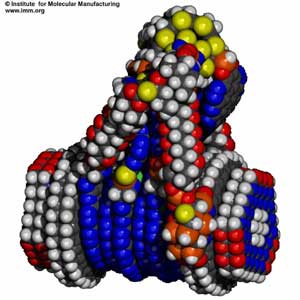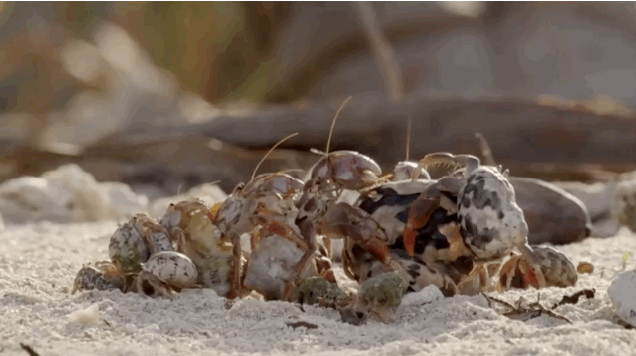

|
Toward a non-violent revolution ‘There are environmental, economic and political grass-roots movements, largely unseen by the wider society, that have severed themselves from the formal structures of power. They have formed collectives and nascent organizations dedicated to overthrowing the corporate state. They eschew the rigid hierarchical structures of past revolutionary movements—although this may change—for more amorphous collectives. Plato referred to professional revolutionists as his philosophers. John Calvin called them his saints. Machiavelli called them his Republican Conspirators. Lenin labeled them his Vanguard. All revolutionary upheavals are built by these entities.’ — read more from Chris Hedges |
1 January 2015
|
|
True or false or … Let’s start by turning back the clock. It is India in the fifth century BCE, the age of the historical Buddha, and a rather peculiar principle of reasoning appears to be in general use. This principle is called the catuskoti, meaning ‘four corners’. It insists that there are four possibilities regarding any statement: it might be true (and true only), false (and false only), both true and false, or neither true nor false. We know that the catuskoti was in the air because of certain questions that people asked the Buddha, in exchanges that come down to us in the sutras. Questions such as: what happens to enlightened people after they die? It was commonly assumed that an unenlightened person would keep being reborn, but the whole point of enlightenment was to get out of this vicious circle. And then what? Did you exist, not, both or neither? The Buddha’s disciples clearly expected him to endorse one and only one of these possibilities. This, it appears, was just how people thought. — read more from Graham Priest at Aeon Magazine |
2 January 2015
|
|
Sometimes activism works When Vermont’s voters forced their legislators to outlaw nuclear power in 2010, the Vermont Yankee plant just kept right on going. Activists were not able to get the state to enforce the law. But nuclear power loses money without government subsidies, and the activists won in the end. Vermont Yankee closed down last week, and now begins a 30-year, billion-dollar-plus decomissioning project, followed by 30,000 years of making sure the radioactive waste doesn’t leak from a permanent storage facility yet to be sited. Yankee was the fifth plant in America to be closed in the past two years. Decades of hard grassroots campaigning by dedicated, non-violent nuclear opponents, working for a Solartopian green-powered economy, forced this reactor’s corporate owner to bring it down. — read more from Popular Resistance Movement News |
3 January 2015
|
|
Your aim is to gradually stop asking ‘What should I do,’ but instead to witness and enjoy, approve your own wise decisions the same way you witness the actions of other people, and of Nature. This is not the same as passivity. Your caring and attention make all the difference. — Josh Mitteldorf |
4 January 2015
|
|
Sleeping half a night at a time People once woke up halfway through the night to think, write or make love. What have we lost by sleeping straight through? — read more from Karen Emslie writing for Aeon magazine |
5 January 2015
|
|
Voice of the American working man I Am the people—the mob—the crowd—the mass. — Carl Sandburg, born this day in 1878 |
6 January 2015
|
|
Cuban Jazz Listen to Wapango of Paquita D’Rivera |
7 January 2015
|
|
Life exploits quantum effects “Weird quantum effects are so delicate it seems they could only happen in a lab. How on Earth can life depend on them?” Every living cell depends on molecular machines that do the work of moving things around, choosing one molecule among many, computation, pushing and pullling, locking and unlocking, cutting and attaching. We are now discovering that these machies are built to exploit the weirdness of quantum mechanics, where things can be in more than one place at a time, where atoms can disappear in one place and re-appear on the other side of a barrier. — JohnJoe McFadden has been doing experiments demonstrating the quantum nature of living chemistry for over 20 years. Read more from Aeon Mag. |
8 January 2015
|
|
Grace We reap what we sow, but Nature has love over and above that justice, and gives us shadow and blossom and fruit that spring from no planting of ours. — George Eliot |
9 January 2015
|
|
The Aim O thou who lovest not alone — Charles G. D. Roberts, born this day in 1860 |
10 January 2015
|
|
How to teach I began to write today’s DI: The way to teach is not to tell your students what is true but to put in front of them an experience that will lead to dissonance, to puzzling and wondering and perhaps to figuring out something new… and then I caught myself, and saw clear to ask instead: What teachers have given you the greatest gift in the past, and how have they done it? and, Have you had experiences where you were able to assist in someone discovering something truly new, that changed him or her in a way that s/he appreciated? How did that come about? — Josh Mitteldorf |
11 January 2015
|
|
A Daily Joy To Be Alive No matter how serene things |
12 January 2015
|
|
Crabs cooperating Hermit crabs find a shell to live in, not of their own making. But as they grow, they need to find a new, bigger shell. The remarkable thing is that they do this cooperatively. When a new shell washes up on the beach and a crab just the right size grabs it, a slightly smaller crab will show up to take the shell that he vacated. And a crab yet a bit smaller will take the third shell. The crabs line up in size order to swap shells! To my knowledge, crabs don’t attend school, but perhaps they learn from the fish, who do. — from a BBC documentary |
13 January 2015
|
|
Samuel Clemens, Mystic ‘you are not you—you have no body, no blood, no bones, you are but a thought. I myself have no existence; I am but a dream—your dream, a creature of your imagination.— In a moment you will have realized this, then you will banish me from your visions and I shall dissolve into the nothingness out of which you made me…you will remain a thought, the only existent thought, and by your nature inextinguishable, indestructible. But I, your poor servant, have revealed you to yourself and set you free. Dream other dreams, and better!’ — from ms notes for The Mysterious Stranger, which Mark Twain worked on through the last decade of his life. Strange that you should not have suspected that your universe and its contents were only dreams… |
14 January 2015
|
|
Having perfected our disguise, we spend our lives searching for someone who isn’t fooled. |
15 January 2015
|
|
‘Everything I did in my life that was worthwhile I caught hell for.’ — Earl Warren |
16 January 2015
|
|
Not even from high mountains does the world seem so wide A world that holds both porpoises and strawberries — Jo Bell |
17 January 2015
|
|
Unfolding before our eyes… People are just greedy and ignorant and stupid. That’s why we have wars and environmental devastation. People aren't even smart enough to vote for their own economic self-interest. That’s why we have massive unemployment, deregulation coupled with ginormous bank bailouts, and increasing concentration of the world’s wealth in the hands of a tiny elite. What if it’s not true? What if the masses are actually pretty level-headed, and crowd-sourced governance is basically sound? What if it requires a global disinformation campaign by all the major news media, coupled with huge bribes, gerrymandering and computerized election theft to produce victories for such benighted policies as war, the rape of Gaia, and corporate welfare? What if the grip of the super-rich on this empire of deceit, corruption and violence, tenuous in the best of times, were now loosening before our eyes as the dogpile of robber barons claw desperately at each other as much as at us, and the truth is bursting out faster than the plumbers can stop the leaks? A one-point program to save us from madness in its many forms is a return to the consent of the governed, a restoration of democracy. — Josh Mitteldorf |
18 January 2015
|
|
The Haven Once, awash in painted twilight, — JJM from a lifelong affection for Edgar Allan Poe, born this day in 1809 |
19 January 2015
|
|
Dream notes Listen to the slow movement from Vasily Kalinnikov’s First Symphony. |
20 January 2015
|
|
The man who convinced philosophers that the Hard Problem is hard If you cannot explain consciousness in terms of the existing fundamentals – space, time, mass charge – then, as a matter of logic, you need to expand the list. The natural thing to do is to postulate consciousness itself as something fundamental. A fundamental building block of nature. This doesn’t mean you suddenly can’t do science with it. This opens up the way to do science with it. What we need to do is to study the fundamental laws governing consciousness, and its interaction with the other fundamental things – particles, fields. |
21 January 2015
|
|
Aristotle’s Metaphysics “It is rather the case that we desire something because we believe it to be good than that we believe a thing to be good because we desire it. It is the thought that starts things off.” Aristotle’s was a philosophy of pure thought. He reasoned that thought is primary, and the idea of anything must precede its existence. The intelligibility of the World is an essential property, without which there would be nothing to talk about. (from the Internet Encyclopedia of Philosophy): “… the source of unity of form among the animals and plants was the activity of thinking, so again the only possible unmoved source for the endless circlings of the stars is an eternal activity of thinking. Because it is deathless and because the heavens and nature and all that is depend upon it, Aristotle calls this activity God.” God is pure thought, without material form and with no connection to material form, no capacity either to sense our world or to cause things to happen in it. …or, as Justin E. H. Smith puts it, ‘Aristotle’s God has no idea the world exists.’ |
22 January 2015
|
|
Skirting a Scientific Taboo The largest ever medical study into near-death and out-of-body experiences has discovered that some awareness may continue even after the brain has shut down completely. Scientists at the University of Southampton have spent four years examining more than 2,000 people who suffered cardiac arrests at 15 hospitals in the UK, US and Austria. And they found that nearly 40 per cent of people who survived described some kind of ‘awareness’ during the time when they were clinically dead before their hearts were restarted. One man even recalled leaving his body entirely and watching his resuscitation from the corner of the room. Despite being unconscious and ‘dead’ for three minutes, the 57-year-old social worker from Southampton, recounted the actions of the nursing staff in detail and described the sound of the machines. “We know the brain can’t function when the heart has stopped beating,” said Dr Sam Parnia, a former research fellow at Southampton University ... who led the study. “But in this case, conscious awareness appears to have continued for up to three minutes into the period when the heart wasn’t beating, even though the brain typically shuts down within 20-30 seconds after the heart has stopped. The man described everything that had happened in the room.” Of 2060 cardiac arrest patients studied, 330 survived and of 140 surveyed, 39 per cent said they had experienced some kind of awareness while being resuscitated. One in five said they had felt an unusual sense of peacefulness. Some recalled seeing a bright light. 13 per cent said they had felt separated from their bodies. — read more in The Telegraph |
23 January 2015
|
|
A time when the public demanded peace “Peace echoed through so many sermons, speeches, and state papers that it drove itself into the consciousness of everyone. Never in world history was peace so great a desideratum, so much talked about, looked toward, and planned for, as in the decade after the 1918 Armistice.” — from Peace in Their Time: The Origins of the Kellogg-Briand Pact, by Robert Ferrel |
24 January 2015
|
|
The Quakers’ Dilemma The Meetinghouse is filled with wise elders and reactive novices. — Josh Mitteldorf |
25 January 2015
|
|
The Search LEAVE, leave, thy gadding thoughts; — Henry Vaughan (1621-1695) |
26 January 2015
|
|
‘Life is caused by the future.’ — Luigi Fantappiè In physics, it is an unresolved mystery that in our familiar macroscopic world, time is a one-way street, but in the fundamental equations of physics, there is no preferred direction of time. In biology, an ever-richer, more complex and more highly-integrated world has evolved over billions of years, creating the illusion of ‘design’. Fantappiè made a first stab at linking together these two mysteries in a book titled , A Unified Theory of the Physical and Biological World (1944). (I can’t find the book in translation, but Ulisse di Corpo has sought to popularize Fantappiè’s work.) |
27 January 2015
|
|
John Tavener Listen to the luscious soprano of Patricia Rozario, singing Eternity’s Sunrise, by John Tavener, born this day in 1944. |
28 January 2015
|
|
Age of Happiness “For some reason we still believe those who really mastered the secrets to longevity and youthfulness can only be found in hermit caves or monasteries somewhere high in the mountains or deep in exotic forests. This isn’t true,” says Vladimir Yakovlev. “Such people live among us: in the neighbouring house, one street over, in cities that we frequent. We just don’t know about them, and because of that, lose an incredible opportunity to learn from them a way of life that just yesterday seemed like absolute fantasy.” The Russian photojournalist started his Age of Happiness project in 2011, documenting people around the world who defy our expectations of ageing. |
29 January 2015
|
|
We become habituated to the lazy and somnambulistic view that we are occupying a familiar place as our familiar selves and so ignore the fountain of serendipitous beatitude that is bathing us non-stop in novelty and wonder. — Night Sky Sangha |
30 January 2015
|
|
Genetic Memory Are people who are born knowing how to play the piano like butterflies that are born knowing there’s a certain tree 2000 miles away where they are destined to spend the next winter? To explain the savant, who has innate access to the vast syntax and rules of art, mathematics, music and even language, in the absence of any formal training and in the presence of major disability, “genetic memory,” it seems to me, must exist along with the more commonly recognized cognitive/semantic and procedural/habit memory circuits. Genetic memory, simply put, is complex abilities and actual sophisticated knowledge inherited along with other more typical and commonly accepted physical and behavioral characteristics. In savants the music, art or mathematical “chip” comes factory installed. — read more from Darrold Treffert at Scientific American |
31 January 2015
|




























